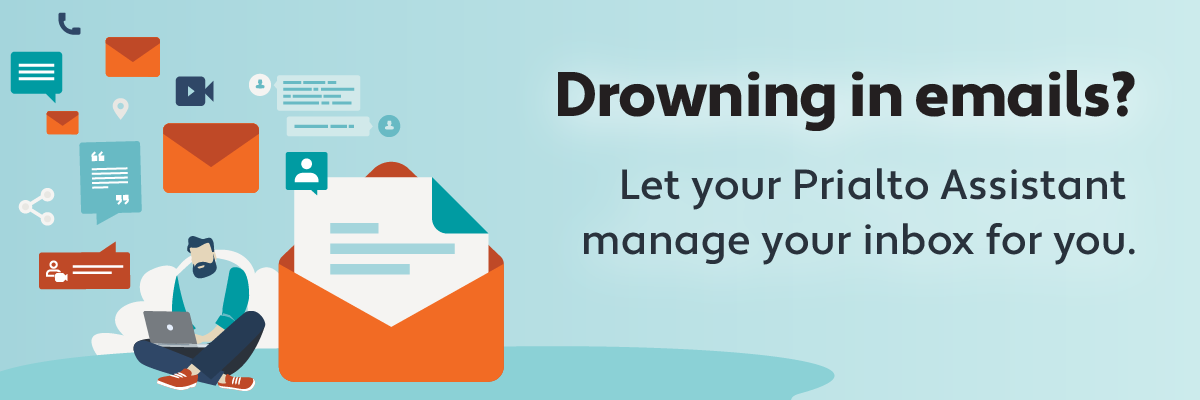According to a recent study, business leaders waste an average of 21.4 hours per week on low-value tasks that don’t contribute to their goals. The wasted time consists of:
- Working on simple business tasks that could have been handled by someone else in their organization or outsourced. For example, data entry/cleaning, document formatting, bookkeeping/expense reporting, etc.
- Giving into distractions such as social media and chatting with colleagues
- Responding to low-value emails that could have been passed off to a subordinate
- Handling low-value requests and dealing with preventable issues
- Sitting in unproductive meetings
All of those activities severely diminish the productivity of successful people since they hold them back from focusing on the strategic activities that they do best.
Here are six time management strategies that will ensure you spend the vast majority of your time working on high-value tasks that drive your success.
1) Set Time Limits for Tasks You’re Likely to Procrastinate On
According to Parkinson’s Law, tasks take as much time as you give them. So, if you’re given two weeks to complete a project, chances are you’re going to finish it right before the deadline even if you could have completed it three or four days sooner.
Parkinson’s Law exists because we’re naturally driven by deadlines. It’s why we often don’t start work until the due date is looming and projects around the house never seem to get done.
To manage your time effectively, you need to set strict deadlines for tasks. Here are a few tips:
- Set conservative deadlines. People often overestimate the amount of time it takes to complete tasks. Give yourself the minimum amount of time a project will take to pressure yourself to complete tasks as efficiently as possible.
- Put reminders on your calendar. This prevents you from forgetting about upcoming due dates and having to struggle at the last minute to get projects done.
- Recruit an accountability partner. People often struggle to take self-imposed deadlines seriously which makes it difficult for them to use this time management strategy. If that’s the case for you, sharing your deadlines with an accountability partner will add pressure to meet your deadlines.
Using these strategies will help you complete more work in less time, allowing you to complete more projects that push you toward your goals.
2) Use an Inbox Management System
An Adobe survey found that the average professional spends five hours per day in their inbox. Unless your KPIs revolve around email communication, it is an ineffective way to spend your time.
An inbox management system can significantly reduce the amount of time you spend in your inbox while preventing important messages from slipping through the cracks.
Here are a few tips to get one started:
- Create a folder system that encompasses the majority of emails you receive each day. For example, if you’re in a project-focused role, create a folder for each sub-project you’re working on or if you’re in sales, create folders for each stage of your pipeline.
- Create folders for urgent and non-urgent miscellaneous emails. These folders are for all emails that don’t fit into your main folders. Separating by urgent and non-urgent helps you focus on important emails.
- Create rules to determine what emails fall into each folder. Your rules can be based on criteria including the contact, the contact’s organization, and the email subject.
- As you see emails, sort them into the correct folders. Do this two to three times per day so that you’re not constantly checking your inbox.
- Throughout the day, read and respond to emails from the folders that correspond with the work you’re doing. For example, if you’re spending the afternoon on Project X, use that time to also review the emails in Project X’s folder.
Reviewing emails when you’re working on their associated projects is an effective time management strategy because it helps change email from being a distraction to a source of timely information.
For more specific tips on how to create an inbox management system that works for you, download our free guide:
3) Adopt Routines to Streamline Your Day
One of the traits that most highly successful people have in common is that they follow some kind of routine - whether it’s just a morning routine or a full daily one.
Routines are so popular among productive people because they have many time-maximizing benefits including:
- It limits the number of small decisions you have to make each day. By not wasting time deciding what you should eat for breakfast or which project you should work on when you first get into the office, you save a lot of thinking time and willpower that can be used for more important decisions.
- It helps you remain disciplined by forcing you to follow a set of steps every day regardless of if you’re tired or things are chaotic at work.
- It sets you up to have a successful day. Having a morning routine gets you mentally ready for a productive day and, adding additional structure throughout the day ensures that you have time to accomplish your goals.
The key to leveraging this time management strategy is carefully creating routines that are aligned with your goals. Here are some qualities of effective routines:
- You are able to complete it every day with limited exceptions. The success of your routines depends on being able to do all the tasks every day. Take into consideration life factors such as kids and medical conditions when considering the amount of time you can allocate to your routines.
- It contains tasks that support your mental and physical health. Much of the power of routines - particularly morning and evening ones - stems from tasks such as eating healthy food, meditating, and exercising that positively impact your wellbeing.
- It contains time to think about your priorities so that you spend your day on projects that drive your success.
4) Take Actions to Limit Distractions
On average, office workers are distracted every 11 minutes via incoming messages, coworkers starting conversations, loud noises, etc. This places a significant limitation on employee productivity because studies show that it takes an average of twenty-three minutes to fully refocus after being distracted.
Thus, the average office worker faces so many distractions that they’re unable to deeply focus on their work.
The lack of focus caused by distractions negatively impact your productivity by:
- Increasing the likelihood that you’re going to forget a step when you resume the task you were working on.
- Limiting your ability to concentrate, which can cause you to work slower and make more mistakes.
- Lowering the quality and quantity of your output. Distractions affect your working memory - causing you to lose your train of thought and forget the ideas that you planned to act on.
Here are some time management strategies that will help you become less distracted:
- Turn off all notifications when you need to focus on your most important tasks. Even if you’re expected to have fast response times, you should be able to block off 45-60 minute blocks of time to work on key projects.
- Schedule a couple of times per day to respond to all of your messages. This lets you focus on your priorities rather than spending your day reacting to other people’s requests.
- Invest in a good pair of noise-canceling earbuds. Offices are full of noisy distractions. Blocking out sound is an easy way to stay focused on the work in front of you.
- Identify the times and locations that you face the fewest distractions. Plan to do your most strategic work during those periods.
Distractions hurt your productivity and performance. To manage your time effectively, you need to constantly take action to reduce the amount of interruptions you experience.
5) Become an Effective Delegator
A report from AtTask found that employees only spend 45% of their time on their core responsibilities. The remainder of their time is spent on admin tasks, email, and other tasks that don’t contribute to their KPIs.
Spending that much time on irrelevant activities is a huge loss of productivity and, to achieve your goals, you need to start spending the majority of your time on tasks that drive your success. To do that, you need to delegate projects that don’t require your expertise.
Here are a few tips to help you become a master delegator:
- Provide clear instructions and be open to answering questions. The success of this time management strategy requires the people you delegate to complete the tasks correctly. Prevent miscommunications so you don’t have to spend time redoing the work yourself.
- Monitor progress periodically. Unless you’re certain the person you delegated to will complete your project on time and without any errors, check in with them periodically to make sure they’re doing the project correctly and will meet the deadline.
- Delegate to junior employees who are eager to take on new projects. Since they’re looking for learning opportunities, you can offload more complex tasks than you can to an admin assistant. In exchange for them helping you, give them valuable feedback and take other actions to support their careers.
- If you don’t have access to admin support at your organization, consider hiring a virtual assistant. They can tackle all of your admin tasks plus do any tedious, process-driven tasks that are part of your core role.
5) Stop Attending Useless Meetings
A report from Atlassian found that the average employee attends sixty-two meetings per month and about half of those meetings are considered useless.
If you’re a leader in your organization, here are some ways you can stop you and your team from wasting time in unproductive meetings:
- Reserve meetings for brainstorming, problem-solving, and decision-making topics. These topics need live discussion to drive productive outcomes, unlike the static information that drives most useless meetings. If you need to share info, send an email instead of forcing people to take time out of their day to listen to it.
- Only invite people to meetings who are crucial participants in the discussion. This prevents your team from wasting time in meetings that aren’t relevant to them and helps you come to conclusions faster.
- Require all meetings to have an agenda sent in advance, along with any info the attendees need to know. Doing this will keep meetings on-topic and ensures everyone has the knowledge they need to be productive participants.
- Conclude every meeting by deciding who is responsible for completing all of the action steps from the meeting. This ensures that every meeting drives measurable results.
Reducing the amount of time you spend in unproductive meetings is one of the most effective time management strategies because it frees up several hours per month to focus on value-driving activities.
About the Author: Emily formerly led Prialto's content production and distribution team with a special passion for helping people realize success. Her work and collaborations have appeared in Entrepreneur, Inc. and the Observer among others.


